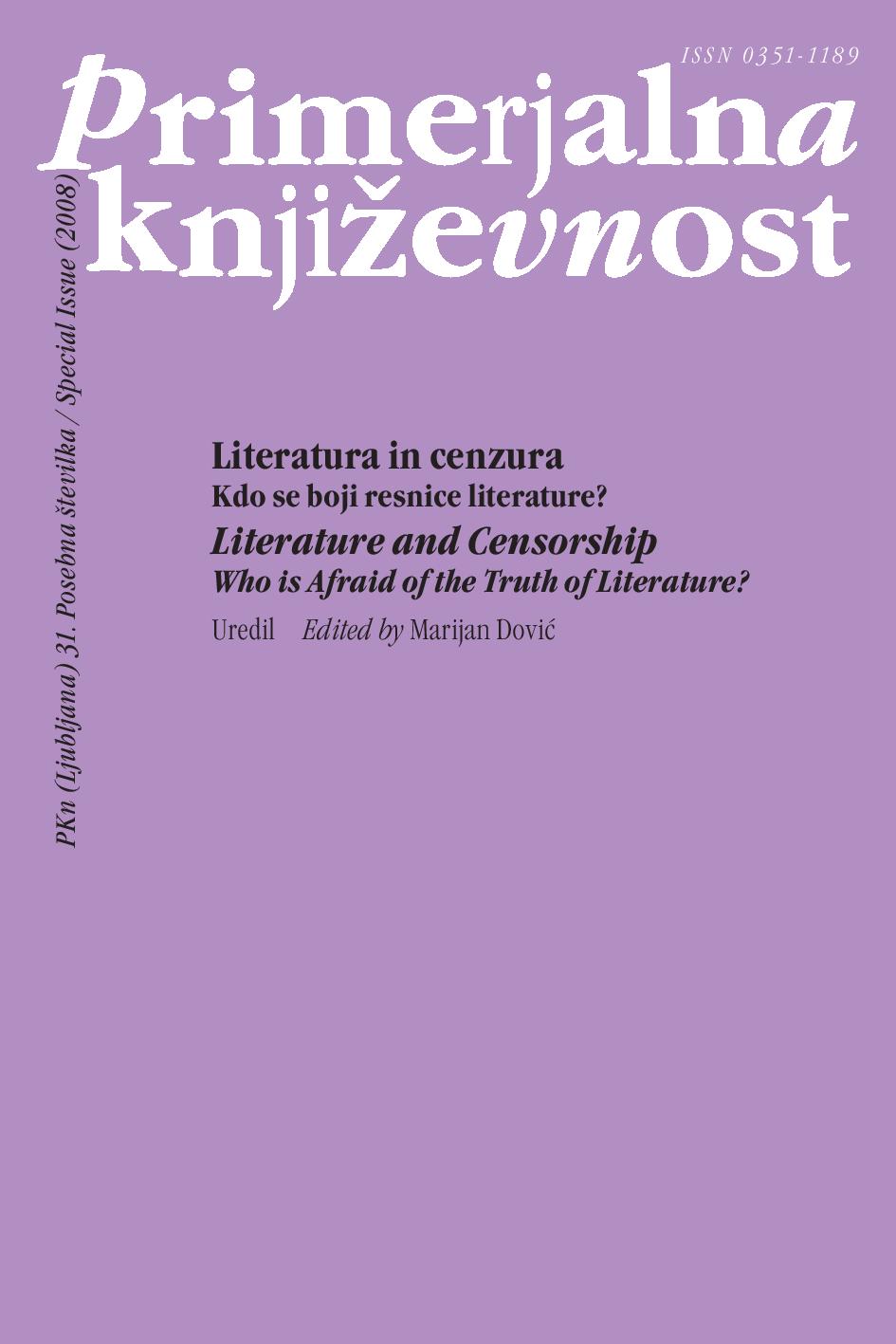A Model of Textual Control: Misrepresenting Censorship
Keywords:
literature and censorship, communication, communication models, textual analysis, theory of controlAbstract
A basic theory of textual control is presented, outlining a communicative model that traces the contest at the heart of any case of censorship as a contradiction in representation. Some special relations between literature and textual control are discussed.References
Baecker, Dirk. »Why Systems?« Theory, Culture & Society 18.1 (2001): 59–74.
Baets, Antoon de. Censorship of Historical Thought. A World Guide, 1945–2000. Westport: Greenwood, 2002.
Butler, Judith. »Ruled Out: Vocabularies of the Censor.« Censorship and Silencing. Practices of Cultural Regulation. Ur. Robert C. Post. Los Angeles: Getty Research Inst., 1998. 247–60.
Foucault, Michel. Surveiller et punir: Naissance de la prison. Pariz: Gallimard, 1975.
Freshwater, Helen. »Towards a Redefinition of Censorship.« Censorship & Cultural Regulation in the Modern Age. Ur. Beate Müller. Amsterdam: Rodopi, 2004. 225–45.
Green, Jonathon. The Encyclopedia of Censorship. New York: Facts on File, 1990.
Kudelina, Oleksandra: »The Master & Margarita and Freedom of Censorship.« Medienobservationen (2008). 1. januar 2008. http://www.medienobservationen.uni-muenchen.de/artikel/literatur/kudelina_freedomofcensorship.html.
Lacan, Jacques. Le séminaire de Jacques Lacan, Livre 3. Les psychoses. Pariz: Seuil, 1981.
Packard, Stephan. »Comics and the Myopic Gaze. Punishments for Unexpected and Effective Texts.« Medienobservationen (2004). 1. januar 2008. http://www.medienobservationen.uni-muenchen.de/artikel/comics/packard_myopie_engl.html.
Schauer, Frederick. »The Ontology of Censorship.« Censorship and Silencing. Practices of Cultural Regulation. Ur. Robert C. Post. Los Angeles: Getty Research Inst., 1998. 147–68.
Thomas, Helen. Watchdogs of Democracy? The Waning Washington Press Corps and How It Has Failed the Public. New York: Scribner, 2006.


